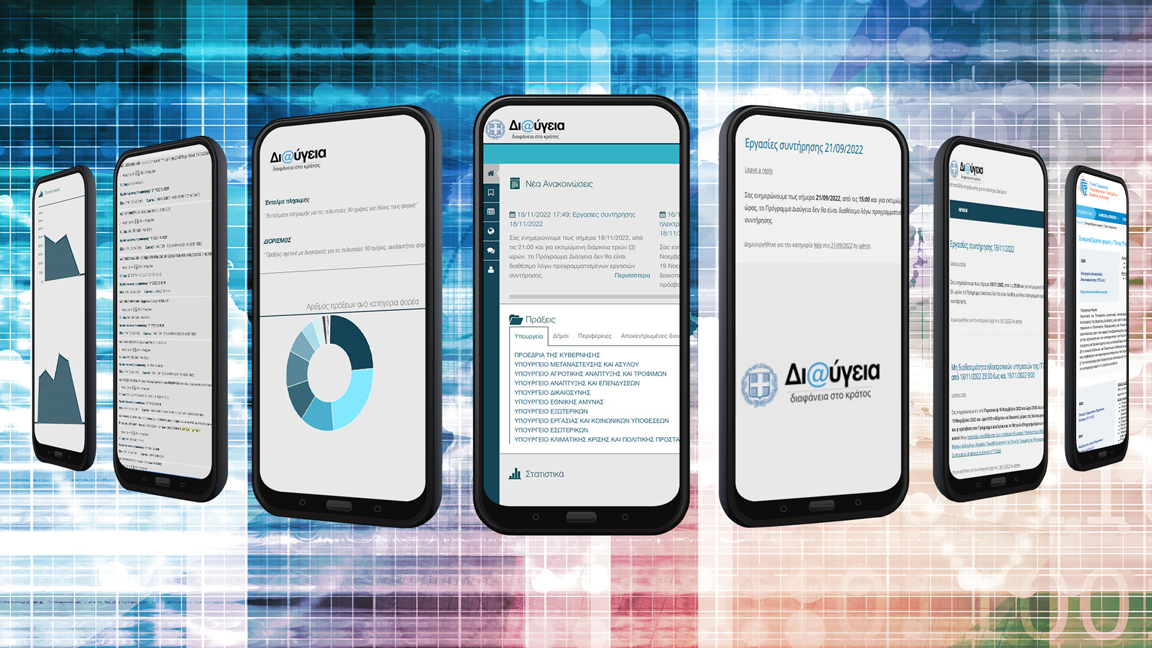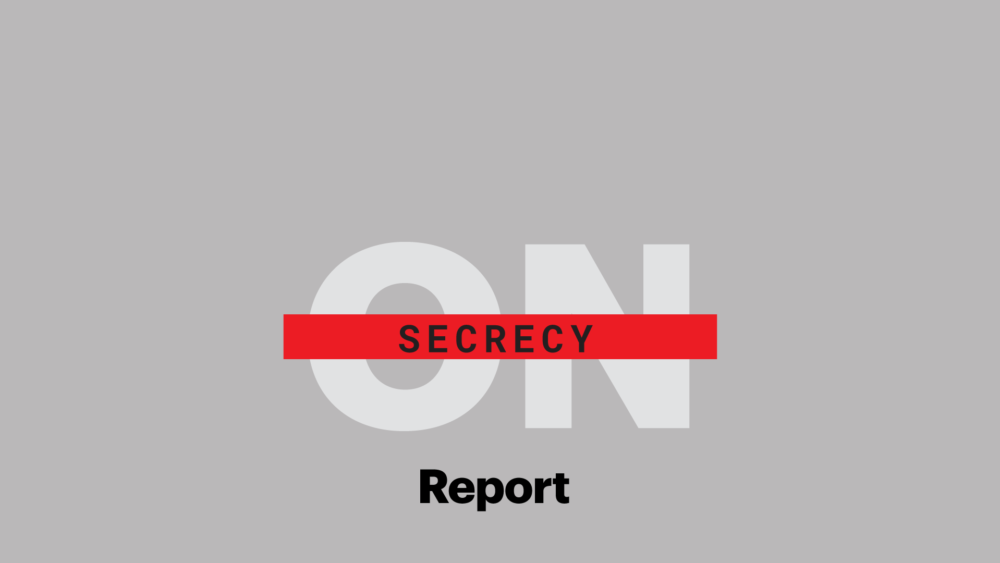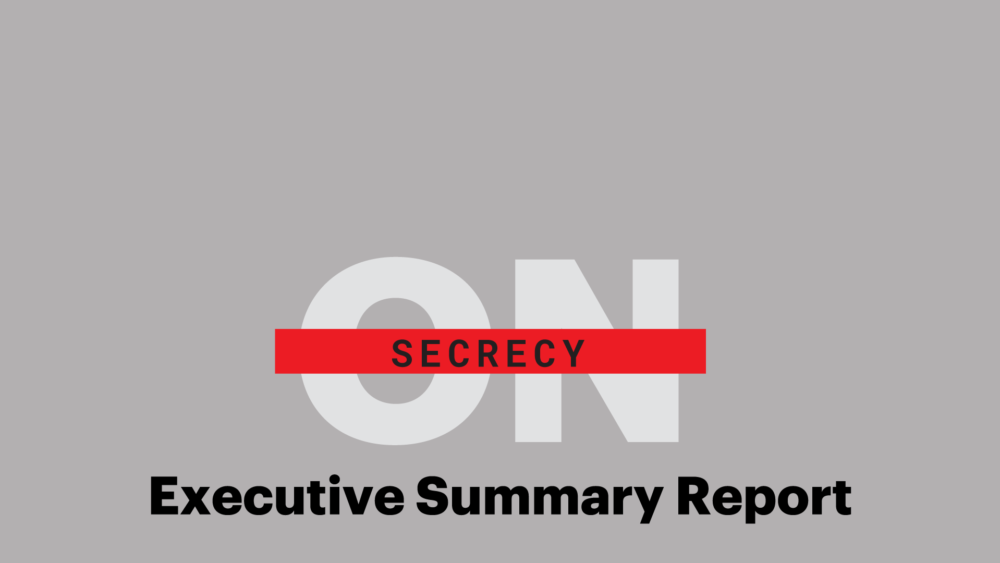
The Transparency Program: Its establishment, its purpose and ways to improve it
“The objective of this law is to establish the obligation to upload on the Internet the laws, presidential decrees and acts issued by the persons and bodies referred to in Article 2 and to create the necessary conditions and procedures for ensuring their broad publicity.”
Article 1 of Law 3861/2010
If we had to pick one reform in recent years that is generally considered positive, this would have to be the Transparency Program (hereafter “Transparency Program/ portal” or “Diavgeia”). In fact, Diavgeia is a case study not just for public administration, but for Greek politics in general. There are four main reasons for that:
- It is constantly “present” in political matters in the form of an irreplaceable monitoring tool of the actions of any given government and public administration.
- It has gained wide acceptance amongst all citizens, regardless of their party affiliation. In fact, as the years go by, its social acceptance is consolidating and growing. It is safe to suggest that a possible attempt to abolish the Transparency Program would provoke drastic reactions, thus making such a scenario unthinkable.
- It is an initiative that was designed and implemented in a short time, without any particular problems and at a low financial cost.
- At a time when the concept of “reform” has taken on a largely negative connotation due to its association with the austerity measures of the memorandum, Transparency is a reform that fully justifies its name.
The above-mentioned four achievements are by no means small, nor are they self-evident in a country characterised by widening disparities, endemic inefficiency in public administration, and a toxic political climate.
Taking the Transparency debate forward, we thought we would examine three important questions in more depth:
- The first is how do those who designed the Transparency portal and those who use it regularly evaluate it?
- The second question is whether the Program requires certain improvements in terms of its operation and what those could be.
- The third question is whether the way that Diavgeia has been set up could become an example of how the public sector should operate.
General Overview
To begin with, we shall lay out some general information and data regarding the Transparency Program, which might help the reader better understand the issue at hand.
The term “Transparency Program Initiative” refers to Law 3861/2010 entitled “Enhancing transparency through the mandatory uploading of laws and acts of governmental, administrative and self-governing bodies on the internet ‘Transparency portal’ and other provisions”. The law was published on 13 July 2010.
Prime Minister at the time was Giorgos Papandreou, Giannis Ragousis was Minister of Interior, Decentralization and e-Government and Dimitris Stefanou was Administrative Reform Secretary General.
Diavgeia’s concept is simple but innovative: All decisions and acts of the government and state agencies must be published on an internet website before they can be implemented or, to put it more correctly, in order for them to be enforceable.
Theodoros Karounos, who was the coordinator of the team that ran the project at the time and is currently a researcher at NTUA and vice president of the Open Technologies Alliance (GFOSS) highlights some of Diavgeia’s essential features:
- It was designed and implemented with the basic principles of openness (collaborative design with open prototypes, open source software and open data).
- Decisions and acts were not enforceable if they were not posted on the Transparency portal.
- Each act was given a unique number, the IUN (Internet Uploading Number), when it was posted on Diavgeia.
Open data is data that is accessible to everyone and can be used, processed and distributed by anyone for whatever reason. The concept of “openness” concerns the software’s availability to everyone who wishes to use it, free of copyright charges.
Open data is data that is openly accessible, exploitable, editable and shared by anyone for any purpose. Open data is licensed under an open license.
Source: Wikipedia
Prodromos Tsiavos, Head of Digital Development at the Onassis Cultural Centre and Director of the Institute for Intellectual Property Rights and Innovation (IPRI) at the European Public Law Organization, was part of the task force that developed the Transparency Program. In a podcast with him that was part of Eteron’s Transparency project, Mr. Tsiavos stated the following:
“Diavgeia introduces the concept of active transparency. That is why it is one of the most significant reforms of the post-dictatorship era.”
“Traditionally, the public sector operated on the basis that if a person wanted access to some information, they had to ask for it. According to Article 5 of the Greek Code of Administrative Procedure on access to public information, I would ask for specific information, then wait, and eventually the relevant authority would decide if they’ll provide it or not. This procedure had a cost to the citizen who had to wait, but also to the public sector who had to look for the information. What has happened with Transparency is that the enforcement of the administrative acts of all administrative bodies has been linked to their uploading on the Internet, thus making them accessible and as transparent as possible”.
For his part, Panagiotis Kranidiotis, a key member of the team that set up the project and currently a member of the Board of (GFOSS), notes:
“It was the quickest running project I had seen to this date. The analysis lasted 6 months, the software implementation, another 4 months, and the whole transparency program and portal was running productively a mere 10 months after we started working on it.
There were three innovative features behind its success:
- First of all, it was a system that was implemented in order to directly support a law. The result was that the law came into force immediately.
- Secondly, project management teams were immediately created and trained in the use of the system. As a result, the system was immediately assimilated by management.
- Thirdly, a technical but important feature, the system inherently has the ability to interact through an Application Programming Interface (API). As a result, Diavgeia was integrated into existing applications, which embraced it as a complementary tool rather than a competing application, thus creating a healthy ecosystem”.
An application programming interface (API) is a way for two or more computer programs to communicate with each other. It is a type of software interface, offering a service to other pieces of software. A document or standard that describes how to build or use such a connection or interface is called an API specification. A computer system that meets this standard is said to implement or expose an API. The term API may refer either to the specification or to the implementation.
Source: Wikipedia
The recollections of George Papandreou
I met George Papandreou in his office in the Greek Parliament. Our conversation was far from an ordinary interview. It is significant that the only issue he raised was the Transparency Program. It was more of a casual discussion aiming to record the former Prime Minister’s testimony. The rest of the discussions with the people who set up Diavgeia were of a similar nature.
To begin with, I asked him about the initial conception of the idea. Mr Papandreou seems to have mentioned a form of “Transparency” as early as 2005. He replied that he was interested in the internet anyway. At that time he was looking into Singapore and Estonia, which were considered to be leading cases of digital reforms. In fact, Mr Papandreou had a personal friendship with the former President of Estonia, Toomas Ilves.
The interest in the internet and the example of foreign countries are obviously not unexpected sources of inspiration. However, the same is probably not true of Papandreou’s reference to the ancient Athenian Republic, in which, as he said, all decisions were written on plaques that every citizen could see.
Diavgeia’s contribution to the reliability of the public administration
For Mr Papandreou, Transparency’s great purpose was to make the administration more trustworthy towards citizens. “The public sector’s money is the citizens’ money. Everyone should understand that. Therefore, citizens must know where it was spent”, he said. Nothing is legal unless it is publicised, is Diavgeia’s fundamental principle.
During our discussion, the former prime minister said several times that corruption is a major problem in Greece and one of the main factors that led the countrty to bankruptcy. But corruption also has a broader meaning, which has to do with “feudal mentality”, as he described it. The so-called “feudal mentality” consists of the state preventing citizens from doing their jobs. Citizens then turn to the political system and the politicians provide them with the necessary information, to which the citizens are entitled to, as a “favour”.
In a plan to reduce corruption, digital technology was seen as an element that could have a central role in the process.
Improving public administration
According to Mr Papandreou, the TransparencyProgram is also a tool for improving public administration. This aspect of the system could have been fully utilised if Diavgeia had been developed as originally planned. Improving public administration through Transparency has two aspects:
The first is the reduction of bureaucracy by simplifying procedures, since the need for checks and controls has now reduced.
The second is the use of big data – which unfortunately has not progressed. If reliable statistical processing of big data was to be carried out, very useful conclusions could be drawn both in terms of highlighting cases of mismanagement as well as those of best practices.
Big data primarily refers to data sets that are too large or complex to be dealt with by traditional data-processing application software. Data with many fields (rows) offer greater statistical power, while data with higher complexity (more attributes or columns) may lead to a higher false discovery rate. Though used sometimes loosely partly because of a lack of formal definition, the interpretation that seems to best describe Big data is the one associated with large body of information that we could not comprehend when used only in smaller amounts.
Source: Wikipedia
The Transparency Program’s team
I asked George Papandreou how the Transparency Program team was able to achieve the desired result, something which is not a common occurrence in public administration. He replied that this success was due to the fact that there had been serious preparation before PASOK (the Panhellenic Socialist Party) came to power. A team of technocrats had been set up that had formulated a clear plan of what needed to be done and had developed exemplary digital functions in the party’s internal procedures.
Furthermore, the team was staffed on the basis of their scientific competence. For the formation of the Transparency Task Force, executives from both the scientific community and from within the public administration were selected through an open call.
One aspect that I think is interesting is that, according to Mr Papandreou, the “oldest members of PASOK (the so-called “core of PASOK” or “deep PASOK”) did not attempt to hinder the whole Transparency project. The explanation he gave was that the popular demand for transparency was so strong and widespread within society, that no one was willing to oppose it.
The Ministry of Interior experience
Giannis Ragousis was Minister of Interior, Decentralization and e-Government when the Bill regarding the Transparency Program passed in the Greek Parliament. Today, he is an MP and parliamentary spokesperson with SYRIZA (Coalition of the Radical Left – Progressive Alliance).
Although Mr Ragousis’ name is mostly associated with the law regarding the granting of citizenship for children of immigrant origin, he himself considers Diavgeia to be the most significant moment of his ministerial term. In general, people who worked on the project share a sense of pride. They do not see the Transparency Program just as a successful reform, but rather as an element that connects them to recent political history.
In his narrative, Giannis Ragousis focused on the concerns that existed regarding the law’s implementation during the design phase of Transparency.
“We didn’t want Diavgeia to end up in the great laws’ graveyard of the Greek state”
Its implementation had been the focus of criticism from the opposition and civil servants/ public administration alike.
The solution that was devised was original for public administration standards and proved to be highly efficient in the long run. Instead of following the path of ex-post penal and administrative sanctions in the event of non-publication of an act on Transparency, an administrative enforcement mechanism was chosen. No act would be valid unless it was first published on the Transparency portal. This ensured that all acts would be posted. Furthermore, no additional layer of control was introduced, as this would have made the public administration process even more complicated.
According to George Papandreou, a similar procedure of administrative enforcement was chosen by his administration for the civil servants’ census. In this case too, no ex-post controls and penalties were introduced, but civil servants were asked to self-register electronically. If they did not do so, their salaries were automatically frozen.
Another point that Mr. Ragousis made, was the improvement of administration thanks to Diavgeia. The uploading and therefore publication of administrative acts, de facto creates standardised norms that state institutions follow. The standardisation of acts makes them clearer. It also makes them easier and quicker to draft.
Inside Diavgeia’s digital core
Theodoros Karounos and Prodromos Tsiavos were… right at the digital “core” of the Transparency Program. They were not just involved in the project’s design but also in the development of the application. Mr. Karounos is a researcher at NTUA and vice president of the Open Technologies Alliance (GFOSS). Mr. Tsiavos is Head of Digital Development and Innovation at the Onassis Cultural Centre and a member of the Board of Directors of GFOSS.
According to its identity, “the main objective of the Open Technologies Alliance (GFOSS) is to promote Openness through the use and the development of Open Standards, open-source software, Open Data and Open Technologies in Education, Public Administration and Business and Social Economy in Greece while at the same time it aspires to become a knowledge hub and a platform for dialogue on open technologies”.
In my discussion with them I tried to understand the exact reasons behind the success of the Transparency Program team, focusing mainly on its creation. I shall summarise the elements and facts that I found most interesting:
- All the team members were eminent scientists who have since gone on to have brilliant careers.
- They were part of the open software community Ανήκαν στην κοινότητα του ελεύθερου λογισμικού.
- They were not selected on the basis of party politics.
- Still, they had a strong ideological position in favour of transparency in general and free software in particular.
- They were paid considerably more than civil servants for their work, but well below market rates.
- As a task force operating in and out of the realms of public administration, they would not have succeeded if they did not have the full support of the political leadership.
Regarding the system’s improvement, they pointed out that since 2014, when a private company upgraded the original application, Diavgeia has been left to its (digital) fate. They consider it necessary to improve its “search” feature so that aggregated data can be easily and quickly retrieved. There is also a need to create a Transparency portal for confidential expenditure. This “secret Transparency” will be accessible to specific institutional actors, and will provide a safeguard for the sound management of secret expenditure.
After our discussion with Messrs. Karounos and Tsiavos, further important areas for further reflection emerged. Indicatively:
- The low cost for the initial development of the Transparency Program is proof that very significant savings can be made in the public sector’s IT projects.
- Open standards are essential for achieving the country’s “digital independence”, the critical importance of which has been starkly highlighted by the recent geopolitical turmoil.
Transparency vs Personal Data
Lilian Mitrou teaches Personal Data Protection Law and Information/Internet Law at the Department of Information and Communication Systems Engineering of the University of the Aegean. Mrs Mitrou was responsible for the drafting of the Transparency Law.
Mrs. Mitrou confirms the strong political will strengthened the foundations of said project. “The idea was that the greater access to information people have, the greater their ability to exercise social control,” she pointed out.
In my discussion with her, I was impressed by her insistence on the need to maintain a balance between promoting transparency and respecting personal data. She was the only one to raise the issue of personal data so emphatically. When the project was being discussed, Mrs Mitrou had argued against ideas such as the public disclosure of tax returns. Along the same lines today, she believes that there is no need for transparency acts to include personal information that may violate people’s privacy, without adding significantly to the need for transparency.
Lillian Mitrou believes that task forces such as the one created for Transparency are of a conjunctural nature and she finds it unlikely that they can serve as examples for other projects in the future.
Diavgeia as a research tool
Although the initial plan was for Diavgeia to be designed for all citizens, in practice the difficulty of obtaining aggregated information limits its frequent users to journalists and members of the various opposition party members in search of government scandals.
Seeking a fuller assessment of the system, I asked two questions to two journalists who are frequent users of the Transparency portal:
- How does the Transparency portal help you conduct your investigative research?
- What improvements do you think that Diavgeia needs?
In response, Thanasis Koukakis said that “the Transparency portal is a rich source of data regarding Administration acts and decisions and it’s helpful that we can retrieve information that goes beyond the past decade. For anyone looking for individuals or legal persons, procurement information, data on transactions with the State and general data on individuals and legal entities that have received State money, Transparency is a valuable tool.”
He also remarked that “searches on the Diavgeia portal have never been extremely user-friendly. I believe that there is work to be done in that respect. Furthermore, data on entities that are currently excluded, such as the Hellenic Financial Stability Fund and the Bank of Greece, should also be included in Diavgeia.”
For her part, Eliza Triantafyllou said that “Diavgeia is a very useful tool that helped journalists very much with their investigative reporting, especially during the pandemic years and Sofia Nikolaou’s direct assignments for the disinfection and cleaning of prisons”.
She added that “compared to other databases that are public, but not open (like G.E.MI. – the General Commercial Registry- and KIMDIS -the Central Electronic Public Procurement Registry) Diavgeia offers a lot in terms of transparency and based on my experience, I find it an ideal portal if one wants to find public contracts, assignments and other data related to the allocation of public money. Apart from the Nikolaou case and other controversial direct assignments under the pretext of the urgency due to the pandemic, I also consulted Diavgeia for cases related to Kavala Fertilisers and the licensing of the companies operating the plant.”
“Τhe main issue with the Transparency portal is also its asset: There is so much hidden in plain sight. Every day hundreds if not thousands of acts are uploaded to the system. Sorting out which ones are of journalistic interest and which ones are not is a task in itself.”
“Otherwise, another problem I’ve encountered when looking for something specific are ‘human errors’ by operators. For example, some people forget to enter a beneficiary’s VAT number (this means that when you search for assignments that a company has received based on its VAT number, some may never appear if, instead of the correct number, the operator, either because he /she is in a hurry or for other reasons, has entered nine zeros or ones). I have sometimes encountered similar problems with the amounts of certain assignments. I remember, for example, looking up a company and suddenly seeing that it had been assigned a job worth over a million (as per the metadata tab of the act) but then, when I read the pdf of the assignment, it was for several zeros less. Apparently the operator who uploaded that particular act to the Transparency portal made a mistake in the amount by increasing it significantly.”
10+1 remarks
After the conversations I’ve had with several people, plus drawing from my own experience of using the Transparency portal, I have reached the following conclusions:
- Diavgeia is undoubtedly a successful public sector reform that truly promotes transparency.
- It is important that Diavgeia promotes transparency because this way it transfers power (in the form of information) from the government of the day to the opposition, the media and civil society.
- Diavgeia has demonstrated that transparency cannot be achieved unless everything is out in the open.
- The Transparency Program is also proof that the public sector can function effectively, thus serving the Common Good.
- Political will is the starting point for the effective operation of the public sector.
- However, political will alone is not enough. It takes people who have a good knowledge of the subject at hand as well as a strong belief in what they are doing.
- The Transparency portal needs to be technically upgraded in order to make it easier for users to extract the requested information and obtain statistical data.
- It is also necessary to extend its reach in order for the portal to contain additional fields/ areas, such as confidential expenditures.
- Furthermore, there should be public monitoring and administrative mechanisms that make systematic and in-depth use of the information provided by the Transparency Program. To date, Diavgeia has only been used by individuals who are not part of the state’s control mechanisms.
- Open software must become the pillar of digital transformation. Diavgeia is a leading example in terms of functionality, reliability and cost.
However, it must be stressed that the fight against generalised corruption cannot be achieved by any digital system, however advanced it may be. Technical means can help, but they are not enough if corruption is the rule rather than the exception. In a society that has fallen into the mire of cynicism and amoralism, the fight for transparency is first and foremost a battle of values.




